2025 Speakers

|
Teck Kheng Lee, Founder and CEO, Launchxtec, Singapore & Consultant, Nanyang Technological University, Singapore |
Biography:
Dr. Teck Kheng Lee earned his B.S. in
Mechanical Engineering and M.S. in
Materials Science and Engineering from
the National University of Singapore in
1995 and 1999, respectively, and
completed his Ph.D. in Mechanical and
Aerospace Engineering at Nanyang
Technological University (NTU),
Singapore, in 2006.
He is the Founder and CEO of Launchxtec
Pte Ltd, a consultancy specialising in
semiconductor packaging, multiphysics
simulation, failure analysis, IoT
applications in manufacturing, and
facilities engineering. As an expert
trainer, he delivers advanced
semiconductor packaging courses to
global industry professionals. Dr. Lee
also serves as a consultant with NTU,
where he has lectured in the M.Sc.
programme on Failure Analysis for
Semiconductor Packaging within the
School of Materials Science and
Engineering.
In 2008, Dr. Lee established the
Technology Development Centre at ITE
College Central, where he led strategic
planning, organisational transformation,
and innovation-driven initiatives. Under
his leadership, the Centre secured more
than S$8 million in competitive research
funding, completed over 500 industry
projects valued at S$4 million, and
successfully commercialised 10 licenses
by 2025.
Earlier in his career, Dr. Lee served as
a Senior Technical Member at Micron
Semiconductor Asia Pte Ltd beginning in
1999, where he managed global substrate
suppliers and drove research in advanced
packaging and materials characterisation.
From 1997 to 1999, at A*STAR’s Institute
of Microelectronics (IME), he pioneered
MEMS packaging and contributed to early
developments in chip-scale and flip-chip
technologies.
Since 2005, Dr. Lee has delivered more
than 100 microelectronics packaging
workshops worldwide through Laureate
International, PDSC, and SEMI Singapore
Pte Ltd. He is frequently invited as a
keynote speaker, guest lecturer, and
distinguished presenter at SEMI and IEEE
events.
A recognised thought leader in
semiconductor packaging, Dr. Lee has
published over 80 papers in leading
journals and conferences and holds an
exceptional portfolio of 154 U.S.
patents. He serves on the SEMI Technical
Committee, the Singapore Chinese Chamber
of Commerce and Industry (SCCCI)
committee, and acts as Singapore’s co-convenor
in the review of IEC semiconductor
standards. His deep expertise in
flip-chip processes—particularly
thermocompression bonding—continues to
shape advancements across the
semiconductor industry. He also
contributes to talent development as an
industry advisory board member for the
CESE at the University of Newcastle,
Singapore.
Dr. Lee’s contributions have earned him
numerous accolades, including the SICC
Award (2022), IEC1906 Award (2023), and
MOE Synergy Awards (2021 & 2022). He has
been consistently featured in Who’s Who
in the World (2007–2021), recognised
among the International Biographical
Centre’s Leading Engineers of the World
(2013–2015), and honoured with the
Albert Nelson Marquis Lifetime
Achievement Award. From 2015 to 2025, he
received the highest corporate and
establishment awards from ITE,
reflecting his sustained impact on the
engineering and education communities.

|
Christopher H. T. Lee, Nanyang Technological University, Singapore |
Biography:
Christopher H. T. Lee(M’12-SM’18)
received his B.Eng. (FirstClass Honours)
degree in 2009, and Ph.D. degree in 2016
both in electrical engineering from
Department of Electrical and Electronic
Engineering, The University of Hong Kong,
Hong Kong. He is currently an Associate
Professor at Nanyang Technological
University, Singapore. He was a
Postdoctoral Fellow and then a Visiting
Assistant Professor at Massachusetts
Institute of Technology, United States.
He is an Associate Editor for IEEE
Transactions on Industrial Electronics,
IEEE Transactions on Energy Conversion,
and IET Renewable Power Generation. He is
currently the Chair of Motor
Subcommittee of IEEE PES Electric
Machinery Committee. He was the Chair of
IEEE Vehicular Technology Society
Singapore Section Chapter in 2023 –
2025. He is a Chartered Engineer in Hong
Kong. His research interests include
Electric Machines and Drives, Renewable
Energies, and Electromechanical
Propulsion Technologies. In these areas,
he has published 2 books, 4 books
chapters, and over 270 referred
papers. Dr. Lee is a Fellow of the
Institution of Engineering and
Technology, U.K. He was a recipient of
the 10thNagamori Award in 2024, IAS
Myron Zucker Student-Faculty Grant in
2023, JSPS Fellowship in 2023, MDPI
Energies Young Investigator Award in
2022, NRF Fellowship in 2020, Nanyang
Assistant Professorship in 2019, Li Ka
Shing Prize(the best Ph.D. thesis prize)
in 2017 and Croucher Foundation
Fellowship in2016, and 8 best paper
awards, including Best Paper Awards in
IEEE Transactionson Energy Conversion in
2022 and 2024.

|
Chiang Liang Kok, University of Newcastle, Australia & Newcastle Australia Institute of Higher Education, Singapore |
Biography:
In 2010, Dr Kok graduated with First
Class Honours in Bachelor of Electrical
& Electronic Engineering from Nanyang
Technological University (NTU). His
exceptional performance earned him the
highly coveted Singapore EDB Integrated
Circuit Design PhD Scholarship to pursue
his PhD at NTU. In 2014, Dr Kok was
awarded his PhD Degree in Electrical &
Electronic Engineering in which he
delved deeply into power management
units, AI, sensors and energy harvesting
systems. He also served as an NTU
undergraduate tutor and teaching
assistant for NTU-TUM Master courses. In
2014, Dr Kok joined the Ministry of
Défense, Mindef DSO National Lab as a
senior member of technical staff. Here,
he spearheaded several state-of-the-art
projects, earning acclaim with the
prestigious Design Innovation Award
(Individual) at the Electronics division
level. Dr Kok was invited to be the
Adjunct Professor (Faculty Member) at
Singapore University of Social Sciences
(SUSS), where he teaches electronics
courses with passion. In 2021, he was
bestowed with the prestigious Gold Medal
Award for Teaching Excellence
(University level) at SUSS.
In 2020, Dr Kok joins the Newcastle
Australia Institute of Higher Education
as a lecturer and program coordinator
for the Bachelor of Electrical and
Electronic Engineering (BEEE). His
influence extends far beyond the
classroom, as evidenced by his exclusive
invitation to the Channel News Asia
(CNA) Money Mind programme in May 2021,
where he shared his expertise on
blockchain technology and sustainable
energy solutions. In Nov 2021, he
receives the Best Paper award at the 3rd
ICESA. Dr Kok also serves as chairman
for the STEM Industrial Advisory Board
Committee and a committee member for the
PEI Exam Board Council. His expertise is
sought after on the international stage,
with invitations as keynote/plenary
speaker and local organising chair for
GMASC 2023, MSM 2024, CCCN 2024, ASET
2024, ACEE 2024 and PCDS 2024.
Furthermore, he is in the technical
program committee for ICET 2024, ITET
2024, ICICDT 2024, TENCON 2024 and RASSE
2024. He is also the chairperson and
moderator for WES 2023, session chair
for AGBRP 2024, TENCON 2024 and ISCAS
2024. He also serves as the publicity
chair for MCSoC 2024 and RASSE 2024.
Recently, he also serves as the special
session chair and co-trainer for
workshop titled “Modern Technologies for
Sustainability and Asset Management” in
McSOC 2024. In July 2024, he is
appointed to the Topical Advisory Panel
for MDPI Electronics, Circuit and Signal
Processing Section. He also serves as
guest editor and reviewer for esteemed
Q1/Q2 ranking journals such as MDPI
Sensors/Electronics/Applied Sciences,
IEEE Access, Circuits, Systems, and
Signal Processing and IEEE Transactions
on Industrial Electronics. Till date, he
has been awarded research funding of
more than S$240K in both PI and co-PI
capacity. With over 50 publications in
Q1/Q2 ranking journals, top conferences,
and several book chapters, Chiang
Liang's scholarly impact continues to
reverberate across the global
engineering landscape.
Previous Speakers

|
King-Jet Tseng, Singapore Institute of Technology, Singapore |
Biography:
King-Jet Tseng was born in Singapore
and received B.Eng. (First Class) and
M.Eng. from National University of
Singapore, and Ph.D. from Cambridge
University in England. He is a Fellow of
IEEE, Fellow of IET, a Fellow of IES and
registered as Chartered Engineer with UK
Engineering Council. He has more than 35
years of academic, research, industrial
and professional experience in
electrical power and energy systems. He
has been the Head of Power Engineering
Division in Nanyang Technological
University and the Board Member of the
Singapore Green Building Council. He
co-founded the Singapore-Berkeley
Building Efficiency and Sustainability
for the Tropics (SinBerBEST) program
funded by Singapore’s National Research
Foundation, and the Electrical Power
Systems Integration Laboratory @ NTU, a
Rolls-Royce research facility. He has
graduated more 30 PhD students,
published more than 300 papers and
inspired a number of technology start-up
companies. Currently, he is the
Professor and Advisor for Electrical
Power Engineering at Singapore Institute
of Technology, working on his vision of
future urban electrical distribution
architecture which can provide flexible
and heterogeneous power quality for
greater sustainability. He continues to
contribute to International
Electrotechnical Commission as a
standardization expert for
grid-integrated electrical energy
storage systems.
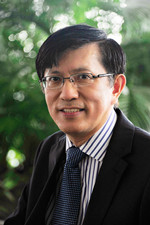
|
Prof. Siew Hwa Chan, Nanyang Technological University, Singapore |
Biography: Professor Chan leads hydrogen and fuel cell research at Energy Research Institute in Nanyang Technological University (ERI@N). He is currently the Director of China-Singapore International Joint Research Institute in Guangzhou Knowledge City, China. Prof Chan obtained his PhD from Imperial College London. He is a Professor in the School of MAE and Cheng Tsang Man Chair Pro fessor in Energy. He is a Fellow of Academy of Engineering, Singapore and a Fellow of ASEAN Academy of Engineering and Technology. He has served as a non-executive director of Maz Energy between 2014 and 2022 and spun out Xin Xiang (Guangzhou) Hydrogen Technologies in 2018. He also served as the Technology and Technical Advisor to Sydrogen Energy, a local fuel cell company. His research has gained him several recognitions, which include George-Stephenson Medal from UK IMechE in 2000, Outstanding Scientific Achievement Award from International Association of Hydrogen Energy, USA in 2007, “World’s Most Influential Scientific Minds” award from Thomson Reuters in 2014, Nanyang Award (Research Excellence) in 2014, Nanyang Award (Innovation and Entrepreneurship) in 2017, “Star of Innovation Talent” in 2018 from Guangzhou Government, and President's Chair in Energy between 2018 and 2023. He is the recipient of two National Day Awards in 2017 and 2018. He is the editorial board member of Fuel Cells, Journal of Power Technologies, Energy Conversion and Management and International Journal of Energy Research. Prof Chan has been teaching Thermodynamics course since 1991 and awarded “Teacher-of-the-Year” in 2000. Prof Chan has published >330 refereed journal papers with a total citation count of more than 17,000 and h-index of 67. Prof. Chan is an ardent hydrogen economy advocate for over 20 years and he was the organizer/conference chair of the 1st World Hydrogen Technologies Convention (WHTC) held in Singapore in 2005.
Title:
Hydrogen as an Energy Vector
Abstract: Hydrogen has
emerged as a promising energy vector
with the potential to revolutionize the
global energy landscape. As the most
abundant element in the universe,
hydrogen possesses unique qualities that
make it a clean and versatile energy
carrier. When used in fuel cells,
hydrogen can efficiently generate
electricity with water as the only
byproduct, eliminating harmful
emissions. Moreover, it can store excess
energy from renewable sources,
addressing the intermittent nature of
wind and solar power. Hydrogen also
holds promise in decarbonizing sectors
like transportation, industry, and
heating. However, challenges such as
production, storage, and distribution
infrastructure must be overcome to fully
unlock hydrogen's potential as a
sustainable energy vector. This
presentation will begin with stating the
facts associated to renewable energy and
the issues related to energy storage and
off-the-grid application. These issues
are further complicated when addressing
energy trilemma - energy security,
energy equity and environmental
sustainability. Hydrogen Economy is
hence emerged strongly as a vision not
only to decarbonize the global economy
but offering energy security solution.
However, hydrogen is very costly at the
moment, but it is expected that the cost
will drop significantly when the
production is at scale. In a renewable
energy scarce country like Singapore,
the production of hydrogen using
renewable energy is limited, while
importing hydrogen from overseas is not
cost effective presently. Currently,
steam methane reforming (SMR) is one the
most popular and cost-effective hydrogen
production technologies globally.
However, the process emits significant
amount of CO2 that go against the carbon
reduction intent. Carbon Capture and
Sequestration (CCS) is not always
implementable in countries such a
Singapore due to its geographical
constraint. The alternative is to split
methane (or natural gas) into hydrogen
and solid carbon, producing no or
negligible CO2. The splitting process is
either by direct thermal decomposition
of methane or by catalytic decomposition
of methane (CMD). It is believed that
CMD may be a solution for country like
Singapore to weather through the energy
transition period.
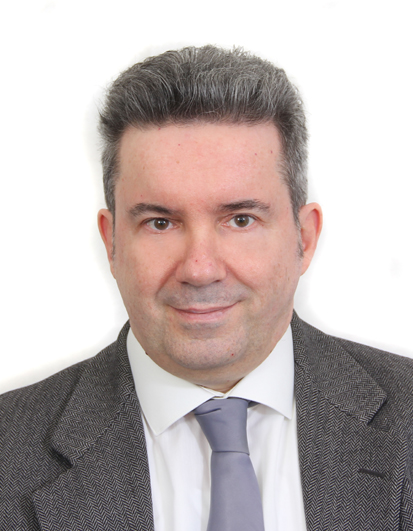
|
Prof. Gianfranco Chicco, Politecnico di Torino, Italy |
Biography:
Gianfranco Chicco holds a Ph.D. in
Electrotechnics Engineering and is a
Full Professor of Electrical Energy
Systems at Politecnico di Torino
(POLITO), Italy. He is a Fellow of the
IEEE and the Chair of the IEEE Italy
Section (2023-2024). He received the
title of Doctor Honoris Causa from the
Universities Politehnica of Bucharest
and Technical University “Gheorghe
Asachi” of Iasi (Romania) in 2017 and
2018, respectively.
He is the Scientific Responsible of the
research group on Power and Energy
Systems at POLITO, and the Responsible
of the Torino unit of the Italian
Consortium ENSIEL.
He is the Editor-in-Chief of Sustainable
Energy Grids and Networks, a Subject
Editor of Energy, and an Editor of IEEE
Open Access Journal of Power and Energy,
IET Renewable Power Generation, and
Energies (MDPI).
He was the Conference Chair of WESC
2006, IEEE ISGT Europe 2017, UPEC 2020,
and IEEE Eurocon 2023. Within POLITO, he
participated in the European projects
FP7 DIGENAS, FP7 SiNGULAR, H2020
FLEXMETER, H2020 PLANET, H2020 STORE&GO,
Erasmus+ EU-MONG, and Erasmus+
THREE-LANKA. Within ENSIEL, he was the
Scientific Coordinator for the European
project H2020 MIGRATE, and participated
in the European projects FP7
eHighway2050 and H2020 OSMOSE.
His research activities include Power
System Analysis, Distribution System
Analysis and Optimization, Electrical
Load Management, Energy Efficiency and
Environmental Impact of Multi-Energy
Systems, Data Analytics, Artificial
Intelligence Applications to Power and
Energy Systems, Renewable Energy Sources
and Distributed Generation, and Power
Quality.
His International scientific production
includes one book, five book chapters,
over 100 journal publications, and over
150 publications in conference
proceedings.
Title:
Optimal Reconfiguration of
Large-scale Distribution Systems:
Challenges and Solutions
Abstract: The Medium
Voltage electrical distribution systems
have a weakly-meshed structure and are
operated with a radial structure to
simplify the protection schemes.
Different configurations can be obtained
by opening different sets of branches,
provided that the network remains
radial. The number of possible radial
structures that can be obtained from a
given weakly-meshed structure can be
computed exactly. However, for
large-scale systems this number is so
high that there is no way to form all
the corresponding radial networks in a
tractable computation time. Finding the
optimal radial configuration for a given
objective (or multi-objective) function
is then an objective that cannot be
guaranteed in a global way. The
available solutions are found by using
deterministic or meta-heuristic solvers,
both based on the branch-exchange
mechanism that allows conducting the
computational procedure by forming only
radial configurations. The challenges to
find out suitable solvers can be
assisted by the definition of suitable
comparison metrics. Many literature
references consider only the best,
average and worst solution found.
However, these metrics are not
sufficiently general to represent the
global properties of the solutions
found. An approach that uses a global
metric based on the concept of
first-order stochastic dominance is more
appropriate to compare a statistically
significant number of solutions executed
for different solvers. The presentation
follows the conceptual line indicated
below, providing some examples taken
from test systems and real distribution
networks.

|
Abhisek Ukil, The University of Auckland, New Zealand |
Biography:
Abhisek received the B.Eng (First Class
Honours) degree in electrical
engineering from the Jadavpur
University, Kolkata, India, in 2000 and
the M.Sc. (dual) degree in electronic
systems and engineering management from
the Univ. of Bolton, Bolton, UK and
Southwestphalia Univ of Applied
Sciences, Germany in 2003. He received
the Ph.D. degree from the Pretoria
(Tshwane) University of Technology,
Pretoria, South Africa in 2006, working
on automated disturbance analysis in
power systems with South African
national utility.
He is currently an Associate Professor
with the Dept. of Electrical, Computer
and Software Engineering, University of
Auckland, NZ. From 2013 to 2017, he was
Assistant Professor with the School of
Electrical and Electronic Engineering,
Nanyang Technological University (NTU),
Singapore, where he led a group of 20
researchers with several industrial
collaborations. From 2006 to 2013, he
was Principal Scientist with the ABB (Asea
Brown Boveri) Corporate Research Center,
Baden-Daettwil, Switzerland, where he
led several projects on smart grid,
protection, control, and condition
monitoring.
He is an inventor of 12 patents, and has
authored more than 200 refereed papers,
2 books, 2 chapters. His research
interests include smart grid, dc grid,
protection and control, renewable energy
and grid integration, energy storage,
and condition monitoring. He is
Associate Editor for IEEE Transactions
of Industrial Informatics,
Springer-Electrical Engineering.

|
Mohan Kolhe, University of Agder, Norway |
Biography:
Prof. Dr. Mohan Lal Kolhe is a full
professor of smart grid, hydrogen energy
and renewable energy technologies at the
University of Agder's Faculty of
Engineering and Science in Norway. He is
a leading renewable energy technologist
with three decades of international
academic experience, having previously
held academic positions at
world-renowned universities such as
University College London (UK /
Australia), University of Dundee (UK),
University of Jyvaskyla (Finland),
Hydrogen Research Institute, QC
(Canada), and others. He was also a
member of South Australia's first
Renewable Energy Board (2009-2011) and
worked on formulating renewable energy
policies. He has been offered the
positions of Vice-Chancellor of Homi
Bhabha State University Mumbai (Cluster
University of Maharashtra Government,
India), full professorship(s) / chair(s)
in 'sustainable engineering
technologies/systems' and 'smart grid'
from Teesside University (UK) and
Norwegian University of Science and
Technology (NTNU), respectively, for his
enormous academic contributions to
sustainable energy systems.
Professor Kolhe is a distinguished
expert assessor for numerous
international research councils (e.g.
European Commission: Erasmus+ Higher
Education - worldwide Capacity Building,
Royal Society London (UK), Engineering
and Physical Sciences Research Council
(EPSRC UK), Cyprus Research Foundation,
and others). Furthermore, many
international organizations have invited
him to deliver keynote addresses, expert
lectures, workshops, and other events.
He has also served on a number of
academic advancement committees.
Professor Kolhe has been successful in
obtaining competitive research funding
from prestigious research bodies (such
as the Norwegian Research Council, EU,
EPSRC, BBSRC, NRP, etc.) for his work on
sustainable energy systems. His work on
energy systems and electrical &
electronic engineering has been
recognised in the top 2% of scientists
worldwide consistently from 2020 to
2023, according to Stanford University
matrices based on Elsevier data. His top
10 publications have received an average
of more than 200 citations each, making
him an acknowledged pioneer in his
profession on a global scale.

|
Kei Eguchi, Fukuoka Institute of Technology, Japan |
Biography: Kei Eguchi (Member, IEEE) received the B.Eng., M.Eng., and D.Eng. degrees from Kumamoto University, Kumamoto, Japan, in 1994, 1996, and 1999, respectively. From 1999 to 2006, he was an Associate Professor and a Lecturer with Kumamoto National College of Technology. From 2006 to 2012, he was an Associate Professor with Shizuoka University. In 2012, he joined the Faculty of Fukuoka Institute of Technology, where he is currently a professor and the Dean of Engineering Graduate School of Fukuoka Institute of Technology. His research interests include Power converters, Switching converters, Energy harvesting, Nonlinear systems, Integrated circuits & systems, Intelligent systems, Non-thermal food processing. He is a Senior Member of IEEJ. He is the President of the Intelligent Networks and Systems Society. He received 2022 IEEE Outstanding Reviewer Award (TPEL), 2022 IEEE Star Reviewer Award (JESTPE), ICIC International Outstanding Contribution Award, the Top Peer Reviewer Award 2019 (Web of Science), 2016 Institute of Industrial Applications Engineers Award, 2016 Contribution Award of Japan Society of Technology Education, KKU-IENC2014 Outstanding Paper Award, 2010 Takayanagi Research Encourage Award, 2010 Paper Award of Japan Society of Technology Education, and Best Award of many international conferences. He published more than 200 international papers. His research interests include switching converters, nonlinear dynamical systems, and intelligent circuits and systems.

|
Ang Swee Peng, Universiti Teknologi Brunei, Brunei |
Biography:
Swee Peng Ang received a BEng (Hons)
degree in Electronic and Electrical
Engineering in 1995 from the University
of Glasgow, UK, followed by an MSc in
Electrical Power Engineering in 2002
from the University of Manchester
Institute of Science and Technology
(UMIST), UK. He completed his Ph.D.
degree at the University of Manchester,
UK, in 2010.
After completing his education, he took
on various roles in academia. He began
as a Deputy Dean at the Faculty of
Engineering, Universiti Teknologi Brunei
(UTB), Bandar Seri Begawan, Brunei
Darussalam, serving from 2012 to 2014.
He then transitioned to the role of
Deputy Dean (Research) from 2015 to
2015, followed by a position as Deputy
Director for Innovative Engineering from
2015 to 2017.
Throughout his career, he has been
actively involved in research and
collaboration efforts. In December 2014,
he was invited to Jinan University,
Zuhai, China, to discuss a collaboration
project and give a technical talk. His
research interests encompass transformer
modeling, ferroresonance studies in
power systems, solar power systems, and
control in power systems.
Currently, Ir. Dr. Ang is a Senior
Assistant Professor in the Electrical
and Electronic Engineering Programme
Area and holds the position of Deputy
Dean (Industry & Services) at the
Faculty of Engineering, UTB. He is
recognized as a qualified Chartered
Engineer (CEng) with the Engineering
Council, UK, and also as a Professional
Engineer with the Brunei Darussalam
Board of Architects, Professional
Engineers, and Quantity Surveyors
(BAPEQS). Additionally, he is a member
of the IET, UK.
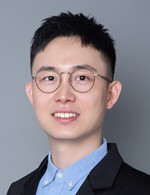
|
Xu Xu, Xi’an Jiaotong-Liverpool University, China |
Biography: Dr Xu Xu received the B.Eng. degree in electrical engineering and automation from the Qingdao University of Technology, Qingdao, China, in 2015, and the M.Sc. and the Ph.D degrees, both in electrical engineering, from The Hong Kong Polytechnic University, Hong Kong SAR, in 2016 and 2019, respectively. Prior to joining XJTLU, he was a Research Fellow in Rolls-Royce@NTU Corporate Laboratory with the School of Electrical and Electronic Engineering, Nanyang Technological University, Singapore. In 2019, he joined as a Postdoctoral Fellow in the Department of Electrical Engineering, The Hong Kong Polytechnic University, Hong Kong SAR. In 2020, he was a Research Assistant I in the Department of Electrical and Electronic Engineering, University of Hong Kong, Hong Kong SAR. He participated in several research projects funded by the Hong Kong SAR government and the Singapore government. Some of his research outcomes have been practically applied by power utilities in Hong Kong SAR and Singapore, and won the best conference paper awarded by IEEE PES. As an IEEE member, he served as a session chair and a committee member at several IEEE conferences. In recent years, he has published more than 20 SCI journal/EI conference papers. He regularly serves as the reviewer for some SCI journals and EI conferences. His research interests include power system optimization, renewable energy generation and integration, energy sharing and trading, and the application of artificial intelligence in smart grids.

|
Nirmal Kumar Srivastava, National Institute of Technology, India |
Biography: Dr. N. K. Srivastava did his B. Tech. from Harcourt Butler Technological Institute (HBTI) Kanpur, M. Tech. from Indian Institute of Technology (IIT) Roorkee and Ph. D. in Chemical Engineering from Dr. B. R. Ambedkar National Institute of Technology (NIT) Jalandhar. Presently, he is working as Associate Professor in the Department of Chemical Engineering at Dr. B. R. Ambedkar National Institute of Technology (NIT) Jalandhar. Dr. N. K. Srivastava has an exceptional academic track record and has 26 years of experience in teaching and research. He has published over 75 research papers in various refereed journals and conferences and 05 Books/ Book Chapters. He is reviewer of 35 peer reviewed refereed SCI/ Scopus indexed journals and e-books. He is member of Organizing and Technical Committees of over 50 Ei Compendex/ Web of Science/ Scopus indexed international conferences throughout the world over. He is Life Member of 08 Professional Organizations of the country. He is invited member of National Board of Accreditation, Faculty recruitment, Academic Audit and External Examiner and has delivered many invited Expert lectures in various Institutes of repute in the country. His areas of interests are new and renewable energy, environmental engineering and waste management.

|
Zhuang Xu, University of Nottingham, Ningbo, China |
Biography: Zhuang Xu (M’16) received the M.Eng.Sci. and Ph.D. degrees in electrical engineering from the University of NewSouthWales, Sydney,NSW, Australia, in 1999 and 2006, respectively. He was with the Energy System Group, University of New South Wales, from 2001 to 2005. He became an Associate Professor with Harbin Institute of Technology, Harbin, China, in 2006, where his research was focused on power electronics and high-performance electrical drives. He is currently an Associate Professor with the University of Nottingham, Ningbo, China. Dr. Xu is a Member of the Power and Energy Society 2017. He was the recipient of three Best Paper awards at IECON’04 IEEE ICEMS 2010 and IEEE ECCE-Asia ICPE 2011, respectively. In 2022, he won Ningbo Science and Technology first Prize.
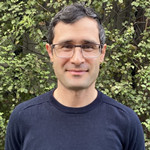
|
Mahdi Jalili, RMIT University, Australia |
Biography: Mahdi Jalili received his PhD in Computer and Communication Sciences from EPFL, Lausanne, Switzerland. He was Australian Research Council DECRA Fellow and RMIT VC Research Fellow. He is currently a Professor of AI and Electrical Engineering at RMIT and also the director of RMIT EV Living Lab. He leads Intelligent Informatics and Control research group, a dynamic research group with six academic staff, 12 research fellow and more than 40 PhD students. His main research areas include complex networks, complex dynamical systems, machine learning and its applications in sustainable energy systems. He has been the organising committee and technical program committee member of many international conferences. He is associate editor or guest editor of several journals including Scientific Reports, Complexity, Frontiers of Physics, IET Smart Grid and Asian Journal of Control.
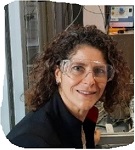
|
Victoria Laura Barrio, University of the Basque Country (UPV-EHU), Spain |
Biography: Industrial engineer and doctorate at the University of the Basque Country UPV/EHU in 2002, where she received her PhD. She was a Postdoctoral researcher in the Engler-Bunte-Institut at the Karlsruhe Institute of Technology (2003-2004). Current research fields are catalytic processes focused on advanced reaction systems for hydrogen production from renewable sources and CO2 valorisation, hydrogen storage and LCA analysis. Including development of thermal- and photo- catalytic processes for the production of high value-added products like methanol from wastes and biofuels and design of advanced reaction systems incorporating microreactors and membranes applied to the mentioned processes. Scientific Coordinator for the ongoing European project UnLOHCked and Partner of the ongoing European SherLOHCk project.
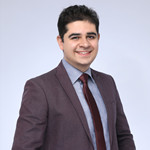
|
Sohrab MIRSAEIDI, Beijing Jiaotong University, China |
Biography: Sohrab Mirsaeidi received his Ph.D. degree in Electrical Engineering from Universiti Teknologi Malaysia (UTM), Malaysia in 2016. Subsequently, he furthered his Postdoctoral Fellowship at the Department of Electrical Engineering, Tsinghua University, China from 2016 to 2019. Currently, he is an Associate Professor at the School of Electrical Engineering, Beijing Jiaotong University (BJTU), China. Sohrab Mirsaeidi has published 60+ papers and 2 books in the field of Microgrids and Large-Scale Power Systems. He is a Member of the National Technical Committee of Measuring Relays and Protection Equipment Standardization of China and has been involved in several national research projects in China. He is an Editorial Board Member for several international journals and a Regular Reviewer for IEEE Transactions journals. He has also served as Chair, Keynote/Invited Speaker, and Technical Committee Member in 50+ international conferences. His main research interests include Control and Protection of Large-Scale Hybrid AC/DC Grids and Microgrids, Power System Stability, and Application of Power Electronics in Power Systems. He is a Member of IEEE, IET, CIGRE, and Chinese Society for Electrical Engineering (CSEE).
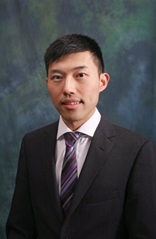
|
Siqi Bu, Hong Kong Polytechnic University, Hong Kong, China |
Biography: Dr
Siqi Bu received his BEng (Hons) in
Electrical Engineering, BSc (Hons) in
Management of Industry and Business in
2006 and MEng (Distinction) in
Electrical Engineering in 2008 all from
Southeast University. He then obtained
his PhD from the Queen's University of
Belfast, U.K., in 2012, where he
continued his postdoctoral research work
in the same department before entering
industry.
Then he worked with National Grid UK as
an experienced UK National Transmission
System Planner and Operator. He joined
Department of Electrical Engineering at
The Hong Kong Polytechnic University (PolyU),
Kowloon, Hong Kong, as an Assistant
Professor in 2016 and then was promoted
to tenured Associate Professor in 2020
via a fast track. He is also a Chartered
Engineer with UK Royal Engineering
Council, U.K..
He is the Associate Head, Departmental
Leader of Electrical Engineering Degree
Program, Impact and Publicity Committee,
Learning and Teaching Committee and
International Student Promotion,
Departmental Alumni Liaison Officer, and
also the Member of Faculty Board. He is
the Founder Director of Renewable
Integration and Smartgrid Application
(RISA) research lab and the Research
Program Leader of Center for Advances in
Reliability and Safety (CAiRS) at PolyU.
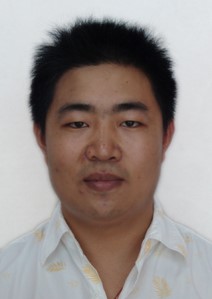
|
Zhilei Yao, Shanghai Maritime University, China |
Biography:
Zhilei Yao (Senior Member, IEEE) was
born in Jiangsu, China. He received the
B.S., M.S., and Ph.D. degrees in
electrical engineering from Nanjing
University of Aeronautics and
Astronautics, Nanjing, China, in 2003,
2006, and 2012, respectively.
From 2003 to 2019, he was with Yancheng
Institute of Technology. In 2020, he
joined the Shanghai Maritime University,
Shanghai, China, where he is currently a
professor. He was a visiting scholar
with the Department of Energy
Technology, Aalborg University, from
November 2014 to 2015. He holds more
than 50 patents, and has authored or
coauthored more than 100 technical
papers. His current research interests
include dc–dc converters, inverters, and
distributed power generation.
Dr. Yao is an Associate Editor of the
IEEE ACCESS. He has been honored as an
IEEE Access Outstanding Associate Editor
for 2021. In addition, he has served as
a reviewer for IEEE Transactions on
Power Electronics, IEEE Transactions on
Industrial Electronics, IEEE
Transactions on Industry Applications,
IEEE Transactions on Industrial
Informatics, IEEE Journal of Emerging
and Selected Topics in Power
Electronics, IET Renewable Power
Generation, IEEE APEC, IEEE ECCE and
IEEE IPEMC Since 2010.
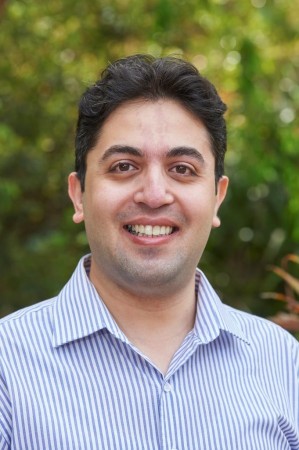
|
Farhad Shahnia, Murdoch University, Australia |
Biography:
A/Professor Farhad Shahnia received his
PhD in Electrical Engineering from
Queensland University of Technology
(QUT), Brisbane, in 2012. He is
currently an A/Professor at Murdoch
University. Before that, he was a
Lecturer at Curtin University (2012-15),
a research scholar at QUT (2008-11), and
an R&D engineer at the Eastern
Azarbayjan Electric Power Distribution
Company, Iran (2005-08). He is currently
a Fellow member of Engineers Australia,
Senior Member of IEEE, and member of the
Australasian Association for Engineering
Education.
Farhad’s research falls under
Distribution networks, Microgrid and
Smart grid concepts. He has authored one
book and 11 book chapters and 100+
peer-reviewed scholarly articles in
international conferences and journals,
as well as being an editor of 6 books.
Farhad has won 5 Best Paper Awards in
various conferences and has also
received the IET Premium Award for the
Best Paper published in the IET
Generation, Transmission & Distribution
journal in 2015. One of his articles was
listed under the top-25 most cited
articles in the Electric Power System
Research Journal in 2015 while one of
his 2015 journal articles has been
listed under the top-5 most read
articles of the Australian Journal of
Electrical and Electronics Engineering.
He was the recipient of the Postgraduate
Research Supervisor Award from Curtin
University in 2015 and the
Australia-China Young Scientist Exchange
Award from the Australian Academy of
Technology and Engineering in 2016.
Farhad is currently a Subject Editor,
Deputy Subject Editor, and Associate
Editor of several journals including
IEEE Access, IET Generation,
Transmission & Distribution, IET
Renewable Power Generation, IET Smart
Grid, IET Energy Conversion and
Economics, and International Transaction
on Electrical Energy Systems and has
served 35+ conferences in various roles
such as General, Technical, Program,
Publication, Publicity, Award,
Sponsorship, and Special Session Chairs.
Farhad has led the IEEE Western
Australia Section as the 2020-2021
Chair, and was the 2019 Founding Chair
of the IEEE Western Australia Industrial
Electronics Society (IES) Chapter. He is
currently the 2021-2022 Secretary of the
IES’s Technical Committees on Smart
Grids.

|
Chunxue Wen, North China University of Technology, China |
Biography:
Wen Chunxue, male, PhD, professor,
master's supervisor, IEEE member, member
of the DC Power Supply Special Committee
of the China Power Supply Association,
member of the Energy Storage Special
Committee of the Beijing Advanced Carbon
Materials Promotion Association, member
of the China University New Energy
Alliance, and member of the
Comprehensive System Special Committee
of the China Renewable Energy Society.
The main research directions include:
distributed energy storage operation and
control; Energy storage converter
control technology; Micro grid and smart
grid operation control; Improving the
resilience of active distribution
networks, etc. Dr. Wen has published
over twenty academic papers including
SCI/EI searches, obtained five
authorized invention patents, published
three translated works, and jointly
published one high-quality textbook in
Beijing.
As the project leader, Dr. Wen has
presided over a sub project of the
National Key R&D Plan, a project of the
Beijing Natural Science Foundation,
three projects of the Beijing Municipal
Education/Science Commission, and more
than ten projects entrusted by
enterprises and institutions. He has won
a second prize of science and technology
in Anhui Province, a second prize of
innovation achievement award of China's
industry university research
cooperation, a second prize of science
and technology progress award of China
Power Construction Enterprise
Association, and a second prize of
invention and entrepreneurship award of
List of Chinese inventions Association.
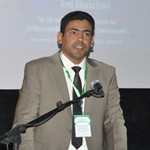
|
Yousef Farhaoui, Moulay Ismail University, Morocco |
Biography: Prof. Dr. Yousef FARHAOUI, is a Professor at Moulay Ismail University, Faculty of sciences and Techniques, Morocco. Chair of IDMS Team, Director of STI laboratory. Local Publishing and Research Coordinator, Cambridge International Academics in United Kingdom. He obtained his Ph.D. degree in Computer Security from Ibn Zohr University of Science. His research interests include learning, e-learning, computer security, big data analytics, and business intelligence. Farhaoui has three books in computer science. He is a coordinator and member of the organizing committee and also a member of the scientific committee of several international congresses, and is a member of various international associations. He has authored 7 Book and many Book Chapters with Reputed Publishers such as Springer and IGI. He is served as a Reviewer for IEEE, IET, Springer, Inderscience and Elsevier Journals. He is also the Guest Editor of many Journals with Wiley, Springer, Inderscience, etc. He has been the General Chair, Session Chair, and Panelist in Several Conferences. He is Senior Member of IEEE, IET, ACM and EAI Research Group.
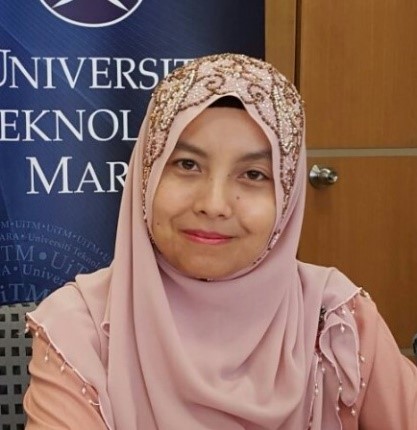
|
Nofri Yenita Dahlan, Universiti Teknologi MARA (UiTM), Malaysia |
Biography:
Ir. Dr. Nofri Yenita Dahlan is an
Associate Professor in the School of
Electrical Engineering, Universiti
Teknologi MARA (UiTM) Shah Alam,
Malaysia. Currently, she serves as the
Director of UiTM Solar Research
Institute (SRI). She received Electrical
Engineering Degree, B. Eng (Hons) from
Universiti Tenaga National (UNITEN)
Malaysia in 2001, M.Sc. degree from the
University of Manchester Institute of
Science and Technology (UMIST), UK in
2003, and Ph.D. degree from the
University of Manchester, UK, in 2011.
Her research interest has focused on
power generation investment, energy
economics and policy, electricity
market, energy modelling, renewable
energy, energy savings and efficiency.
In recognition for her achievements in
the fields, she has been awarded a
Certified Measurement and Verification
Professional (CMVP) in 2014 from the
Efficiency Valuation Organization (EVO)
and Association of Energy Engineers
(AEE), U.S. Under these capacities she
has trained more than 400 measurement
and verification (M&V) practitioners and
involved in M&V audit for more than 30
Energy Performance Contracts (EPC) and
green technology projects in Malaysia.
She also served as policy consultant for
United Nation Industrial Development
Organisation (UNIDO) Malaysia Energy
Efficiency and Solar Thermal Application
(MAEESTA) Project. In this exercise, she
developed a Policy Brief titled Solar
Thermal Deployment Strategy for
Malaysian Industries and led the
development of three energy efficiency
and conservation guidelines for Energy
Commission Malaysia. In rural
electrification related project, she has
partnered with researchers from the
United Kingdom to conduct a research
project titled “Facilitating a Just,
Fair, and Affordable Energy Transition
in the Asia-Pacific” for addressing
energy justice dimensions of rural
electrification, techno-economic
analysis of different business models
and policy implications of these
combined findings through stakeholder
workshops. In 2021, she has been
featured as a Women Leaders in Energy
and Environment by Young Southeast Asia
Leaders Initiative (YSEALI) Women’s
Leadership Academy Alumni Network.
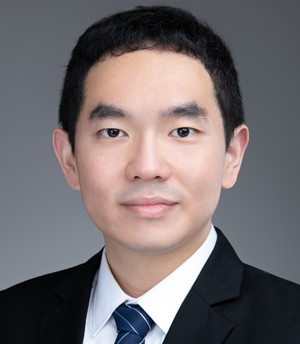
|
Yun Yang, Nanyang Technological University, Singapore |
Biography: Yang Yun received B.Sc. degree in Electrical Engineering from Wuhan University in 2012 and Ph.D. degree in Electrical Engineering from the University of Hong Kong in 2017. He was a Research Assistant Professor at the Department of Electrical Engineering, The Hong Kong Polytechnic University. He is currently an Assistant Professor at the School of Electrical and Electronic Engineering, Nanyang Technological University, and an Honorary Research Assistant Professor at the Department of Electrical and Electronic Engineering, The University of Hong Kong.

|
Olusola Bamisile, Chengdu University of Technology, China |